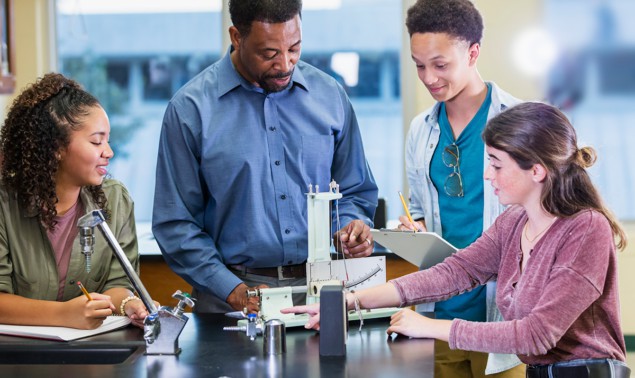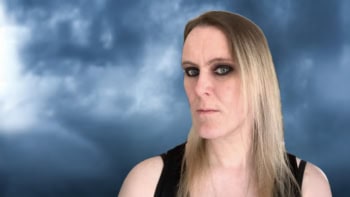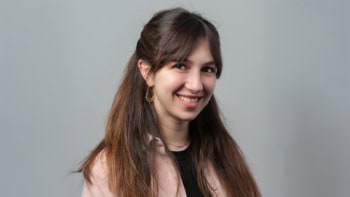Niki Bell says that subject-matter experts do not necessarily make the best teachers

Several years ago Channel 4 in the UK broadcast an educational experiment called Jamie’s Dream School in which eminent experts in their field – including actor Simon Callow, historian David Starkey and journalist Alastair Campbell – delivered lessons to school students. As expected by almost every teacher in the country, they failed miserably to inspire and educate in the way that they intended. It is true that having physics graduates teach physics brings huge benefits to students and I agree with my fellow Physics World contributing columnist Jess Wade when she stated that “the importance of physics teachers has never been more critical”. However, the recent government drive in the UK to hire teachers with PhDs in physics or a technical subject leaves me feeling uncomfortable at best.
I often see a pattern with professional teachers in which the better they know the subject, the harder they find communicating it to students
I joined the teaching profession after studying geology at university, specializing in geophysics in my fourth year. I now have more than a decade of experience teaching in a range of schools and I value my undergraduate degree more than ever. After all, most of my A-level students study more than one science and the beauty of a geology degree is its breadth. As any earth scientist will tell you, geoscience is the most holistic of all the sciences. It includes everything from geochemistry, geomorphology, hydrogeology and geophysics to mineralogy, palaeontology, petrology, volcanology and stratigraphy. They each use aspects of biology, chemistry and physics to draw out the information from the clues left behind in the Earth. Indeed, I remember a petrology lab in which we used rudimentary detective skills to discern the order of crystallisation of minerals. It helped me see that my degree was not in one branch of science – it was in all of them.
After graduating I became a seismologist, but quickly began to miss the breadth of science that I had studied. So, I went into teaching where I taught all three sciences for younger pupils up to GCSE level and now aspire to do the same for 16–18-year-olds studying for A level. Many of my A-level students are learning several different science subjects at the same time, which in some cases means learning different simplifications of the same topics.
A good example is orbital shells. In A-level physics, we teach students that these are spherical and cloud-like, or in quantum physics, step-like. We do not attempt to address s, p, d and f shell configurations because that would be beyond the scope of the curriculum. But in A-level chemistry these shells are studied in more depth, including the order in which they are filled. If you are a physicist who specialized early, you may never have studied this phenomenon in the context of chemistry. Our students studying both A levels are exposed to both the chemistry explanation and the physics explanation, which are dramatically different.
Another example is in A-level biology, where students may find it easier to understand ventilation and gas exchange if they have studied pressure or similar examples in physics. A pure physicist will often not have been exposed to the range of topics covered by their students and will often miss opportunities to embed such examples into their teaching. Students therefore increasingly see the divide between the subjects rather than the overlap. They can struggle to see that one reinforces the other if their teachers are unable to show them where to start.
A ‘holistic’ approach
I often see a pattern with professional teachers in which the better they know the subject, the harder they find communicating it to students. The reason for this is the gulf that exists between the expert and the novice. To be a good educator, a teacher needs to understand the starting point of the student. They need to have an appreciation of the pitfalls and the common misconceptions that many students fall into and a range of different techniques to get them out. The importance of teachers to bridge the educational divide![]()
A physicist with a deeply engrained specialism is simply further from the students’ position on the timeline of learning and typically finds it harder to identify with their position and help them out of it. A graduate with a more holistic degree, however, who has self-studied hard to revise those topics that they are less familiar with, is closer to the level of the student. Their subject knowledge isn’t as robust, but once established as teachers, the breadth of their knowledge is more inclusive, and the depth of knowledge is closer to what the student needs.
This thinking can also be applied to school and sixth form physics departments. You want teaching staff to be flexible and in touch with the needs of your students, but you also need the expertise to establish academic rigour and guide high-achieving students. A good department has a mix of both kinds of teacher: those with subject expertise and those with broad experience of the sciences. Give them time and space to support one another and the benefits will be plain to see.



